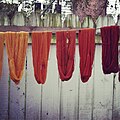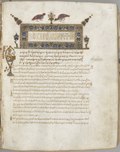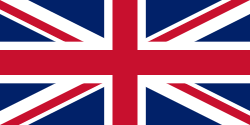Isatis tinctoria, also called woad (/ˈwoʊd/), dyer's woad, dyer's-weed, or glastum, is a flowering plant in the family Brassicaceae (the mustard family)...
27 KB (2,936 words) - 03:15, 31 May 2025
Avet. Isatis takhtajanii Avet. Isatis tinctoria L. Isatis tomentella Boiss. & Balansa Isatis trachycarpa Trautv. Isatis turcomanica Korsh. Isatis undulata...
8 KB (689 words) - 18:06, 15 October 2023
(Polygonum tinctoria), Natal indigo (Indigofera arrecta), Guatemalan indigo (Indigofera suffruticosa), Chinese indigo (Persicaria tinctoria), and woad Isatis tinctoria...
42 KB (4,837 words) - 12:46, 31 May 2025
colored Folium also called Turnasole. Plant-based dyes such as woad (Isatis tinctoria), indigo, saffron, and madder were important trade goods in the economies...
51 KB (6,456 words) - 21:36, 20 April 2025
Balsaminaceae Indigofera tinctoria, the true indigo, a plant species Isatis tinctoria, woad, a flowering plant species Tinctoria This disambiguation page...
378 bytes (71 words) - 00:04, 6 July 2023
of Indigofera tinctoria; this is the plant that is now known as "true indigo" or "natural indigo". In Europe, the use of Isatis tinctoria, or woad, can...
17 KB (1,746 words) - 14:56, 6 March 2025
important species was Indigofera arrecta, Natal indigo. In Europe, Isatis tinctoria, commonly known as woad, was used for dyeing fabrics blue, containing...
44 KB (4,339 words) - 02:34, 2 June 2025
means primarily "glass", but also the domestic name for the "woad" (Isatis tinctoria), besides the Gaulish loanword glastum (from Proto-Celtic *glastos...
64 KB (5,631 words) - 00:11, 26 May 2025
two are found in plant sources such as woad (Isatis tinctoria L.) and the indigo plant (Indigofera tinctoria L), as well as in several species of shellfish...
38 KB (4,377 words) - 17:53, 11 May 2025
most of which are found in the area of the main summit in the south. Isatis tinctoria ssp. athoa, a woad subspecies, and Viola athois are named after Mount...
21 KB (2,055 words) - 13:38, 31 May 2025
bright yellow dye. The yellow could be mixed with the blue from woad (Isatis tinctoria) to produce greens such as Lincoln green. The dye was in use by the...
6 KB (772 words) - 21:01, 11 April 2025
Carmine; Casoria, Paolo; Menale, Bruno (2000). "Cultivation and use of isatis tinctoria L. (Brassicaceae) in Southern Italy". Economic Botany. 54 (3): 395–400...
40 KB (4,104 words) - 19:36, 14 May 2025
Chang; Huang, Jianmin (2023-08-18). "Classification of Isatis indigotica Fortune and Isatis tinctoria Linnaeus via comparative analysis of chloroplast genomes"...
13 KB (1,655 words) - 15:48, 24 May 2025
uneconomic. Tech 9 20 Woad dyer A woad dyer extracted woad from the Isatis tinctoria plant and used it to dye textiles blue. The occupation required skill...
150 KB (8,451 words) - 00:28, 25 May 2025
produced from the leaves of the plant Isatis tinctoria; Indigo, derived from the plant Indigofera tinctoria; and Turnsole, also known as folium, a dyestuff...
53 KB (5,502 words) - 16:24, 23 May 2025
period of commercial prosperity largely due to the cultivation of Isatis Tinctoria, commonly known as woad. The fine houses built during the Renaissance...
19 KB (1,659 words) - 12:03, 1 June 2025
Instead, Karaites propose that the source of the dye was indigo or woad (Isatis tinctoria). Karaites also consider synthetic blue or blue-violet to be acceptable...
35 KB (4,140 words) - 19:23, 4 May 2025
Woad is the common name of Isatis tinctoria, a flowering plant also known as glastum. Woad may also refer to: National Anthem of the Ancient Britons, also...
928 bytes (159 words) - 04:46, 22 February 2025
is incorrect. They suggest that the source of the dye was indigo or Isatis tinctoria. Rabbinic Jews have specific traditions on how the tassels are to be...
92 KB (11,762 words) - 21:11, 14 May 2025
timidus – timida – timidum tinctorius L for dyeing woad, Isatis tinctoria tinctorius – tinctoria – tinctorium tomentosus L furry bristle-tail filefish,...
158 KB (789 words) - 11:00, 18 April 2025
Elymus repens, Geranium robertianum ssp. rubricaule, Glaucium flavum, Isatis tinctoria, Ligusticum scoticum, Mertensia maritima, Silene uniflora, Tripleurospermum...
15 KB (1,643 words) - 16:33, 26 April 2024
custom of tattooing or painting their bodies with blue woad made from Isatis tinctoria. Parthenius, an Ancient Greek grammarian, and the Etymologicum Genuinum...
191 KB (19,094 words) - 23:03, 25 May 2025
Carmine; Casoria, Paolo; Menale, Bruno (2000). "Cultivation and use of isatis tinctoria L. (Brassicaceae) in Southern Italy". Economic Botany. 54 (3): 395–400...
120 KB (14,425 words) - 22:22, 24 April 2025
rich and fertile soil. The cultivation of woad, pastel in portuguese Isatis tinctoria was introduced by Lodewijk Govaert, a migrant from Bruges to the Island...
20 KB (2,469 words) - 01:16, 13 November 2024
wax and honey, and the middle section controlled the German indigo (Isatis tinctoria) of the Thuringian Basin as well as the mining products of the Saxon...
7 KB (765 words) - 05:57, 6 March 2025
Galium aparine, Cruciata laevipes, Galium odoratum, Genista tinctoria, Isatis tinctoria, Rubia peregrina, and Verbascum thapsus. List of botanical gardens...
3 KB (198 words) - 00:20, 2 October 2024
concentrate on a few chief exports: initially, lichen (Roccella tinctoria) and woad (Isatis tinctoria), later the introduction of wheat and corn crops. Woad was...
33 KB (3,649 words) - 05:26, 23 February 2025
28–34 mm. Adults are on wing from December to January. The larvae feed on Isatis tinctoria, Raphanus raphanistrum and Eruca vesicaria. Along the coast, larvae...
1 KB (85 words) - 18:52, 11 March 2025
outbreak of the Barons' War. The blue of Amiens produced from woad (Isatis tinctoria) known as the Pastel des teinturiers et de waide [Pastel of dyers and...
40 KB (4,971 words) - 17:08, 28 April 2025
constituent of olive leaf extract), Astragalus membranaceus, and Isatis tinctoria or Isatis indigotica. Another review assessed the quality of evidence for...
46 KB (5,195 words) - 14:28, 28 March 2025
























